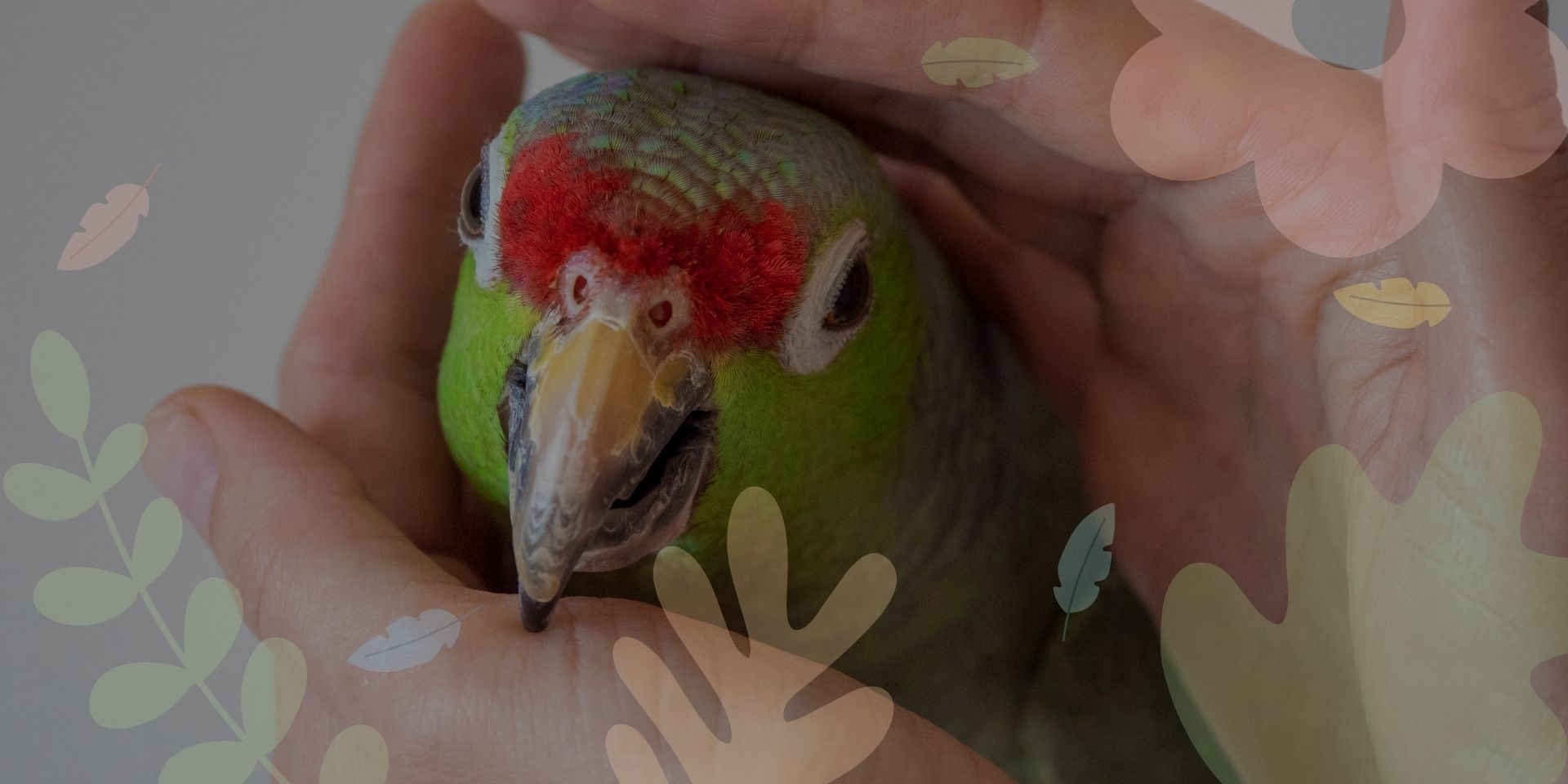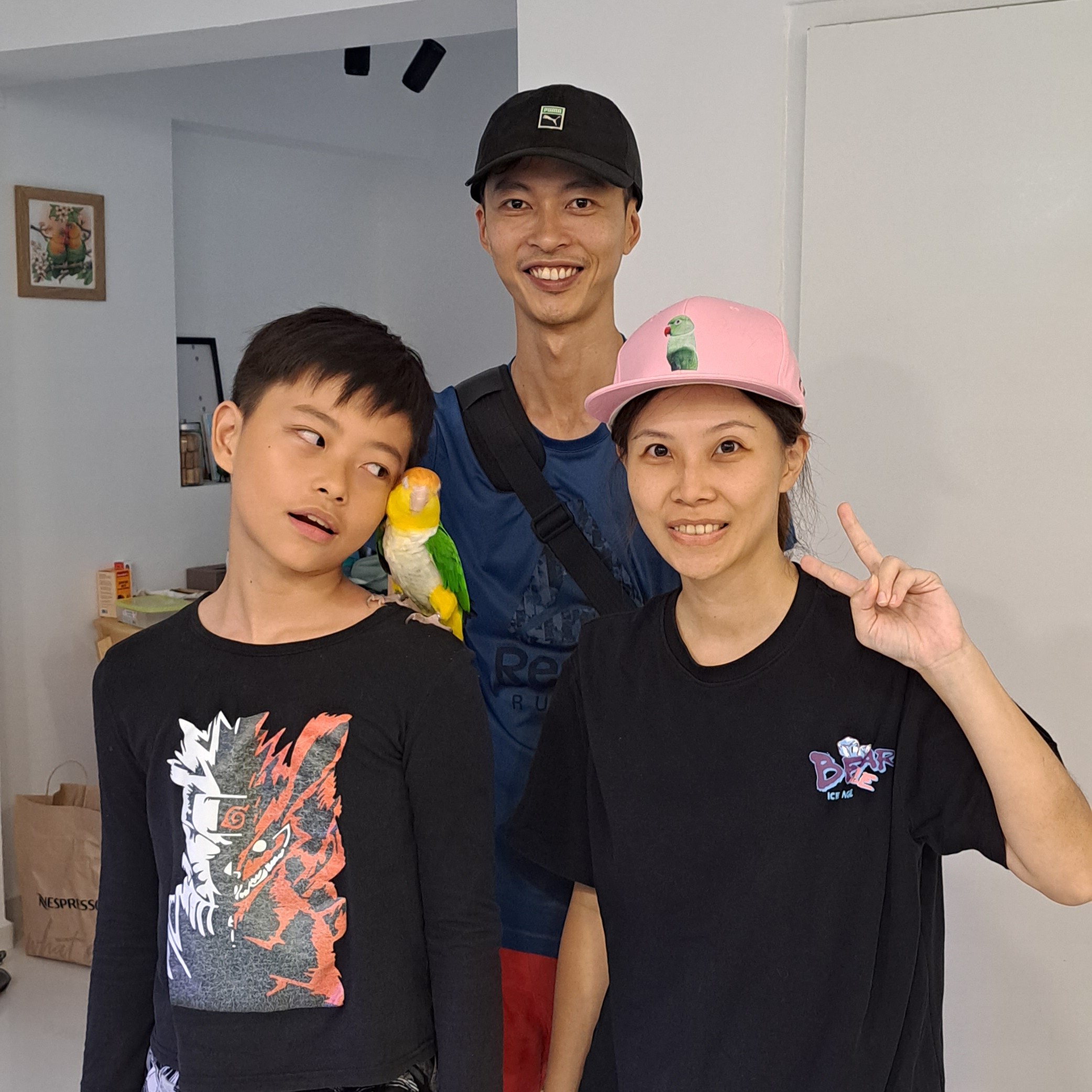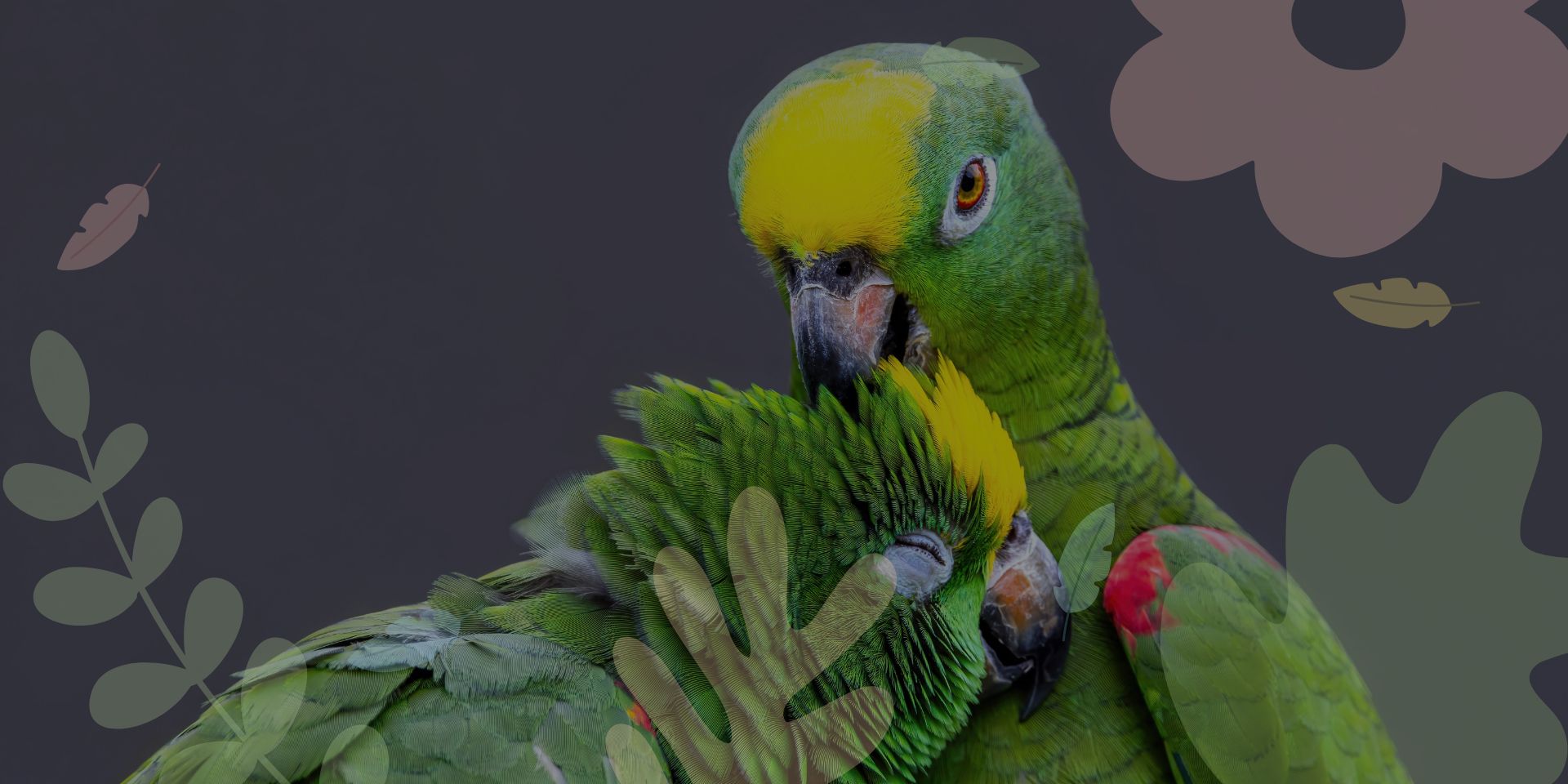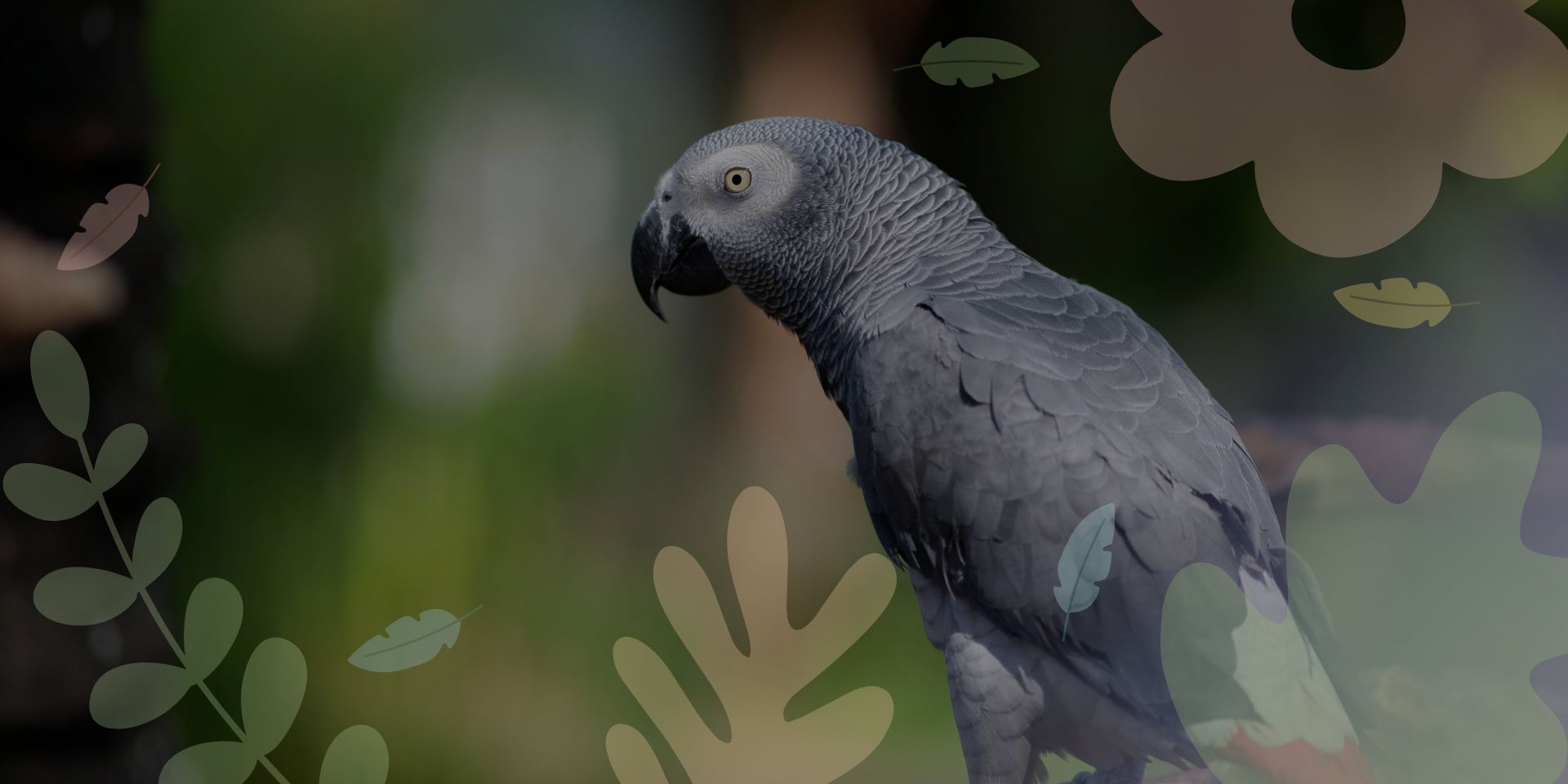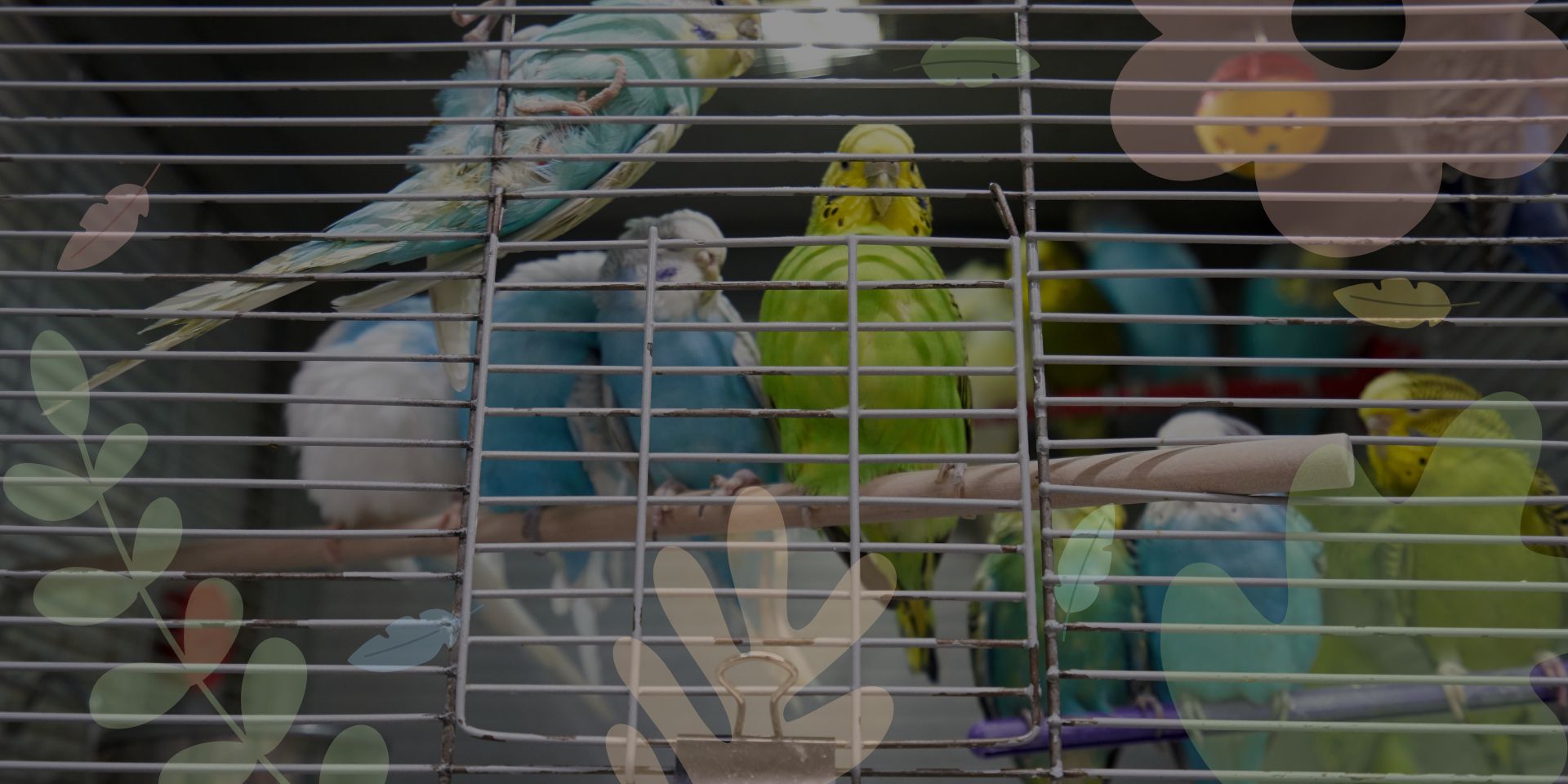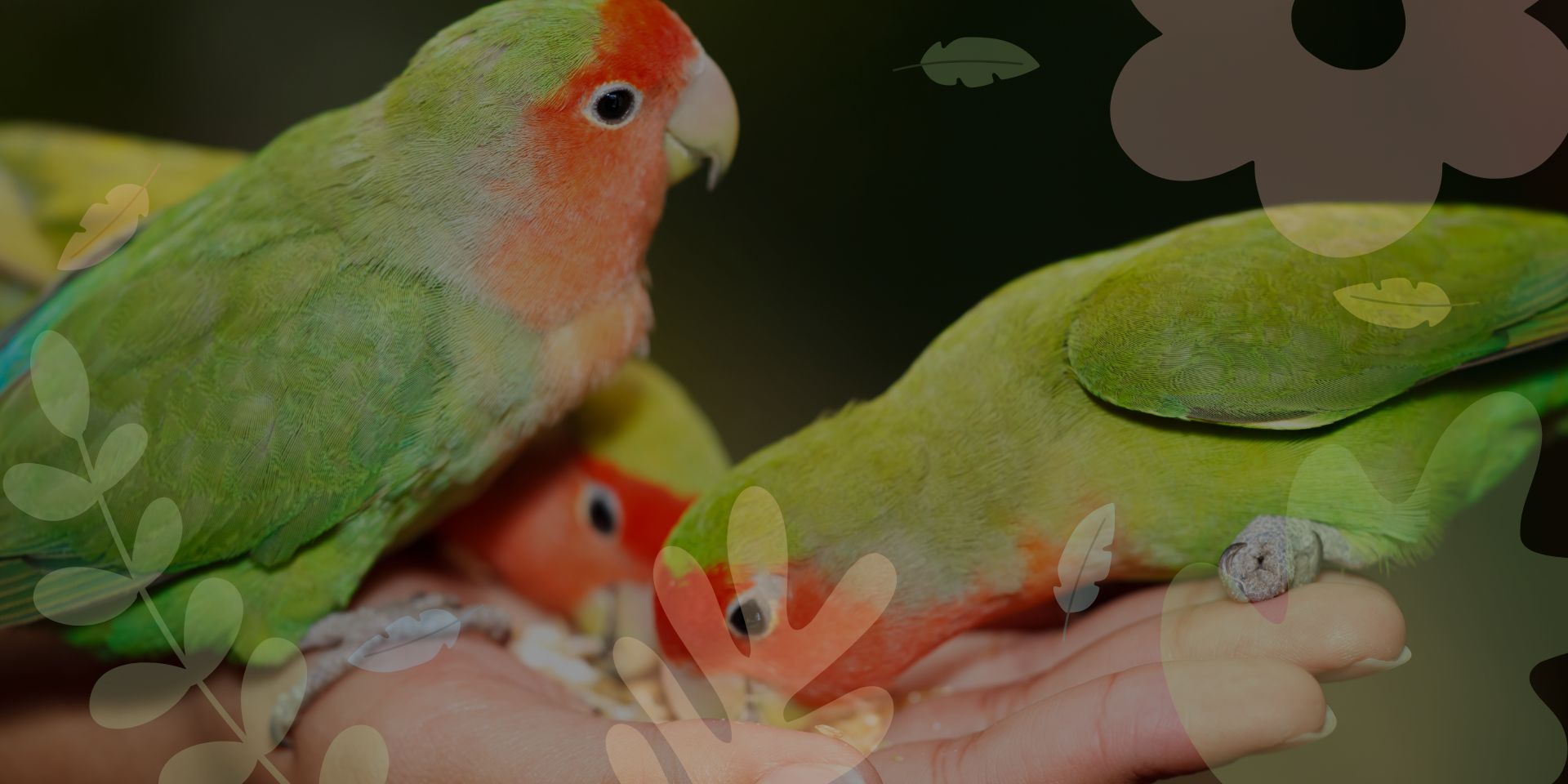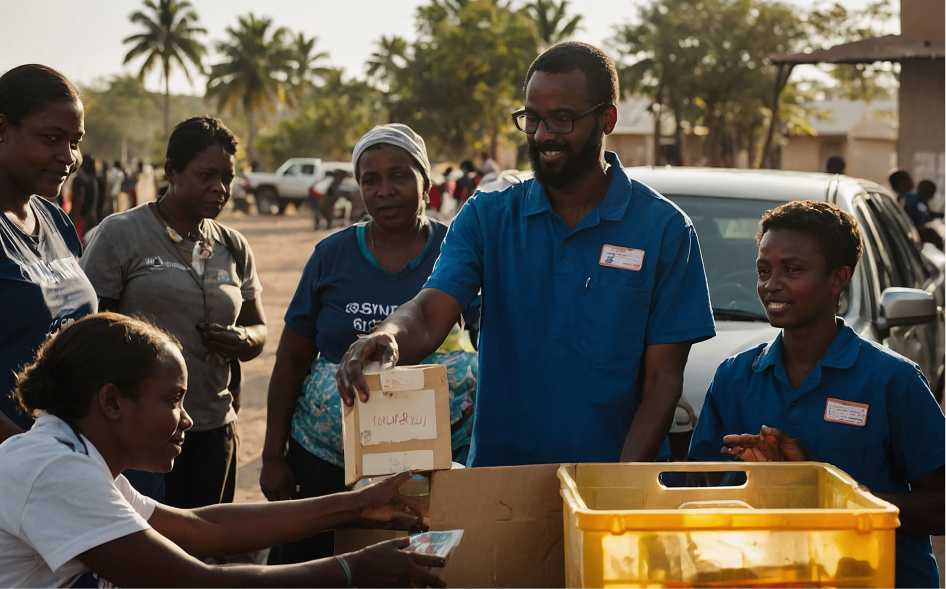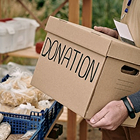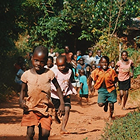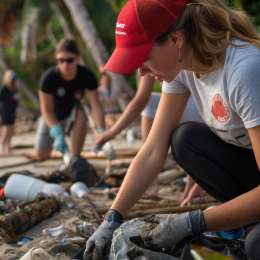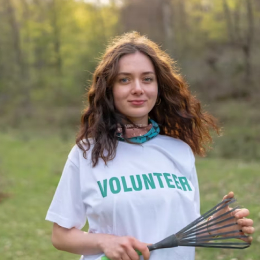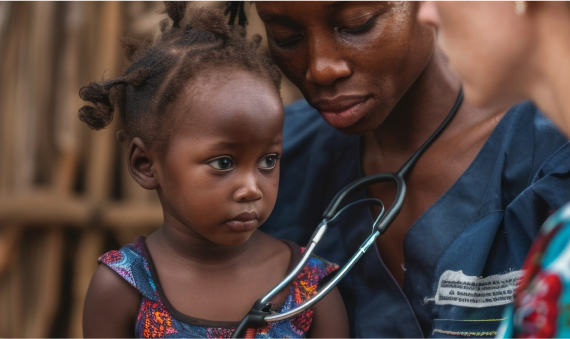Ever wondered what it’s like to have a feathery friend as part of your family? Fostering a parrot is a truly unique and rewarding experience, and Parrot Society (Singapore) is looking for people with a big heart to offer temporary homes to these intelligent, cheeky birds.
When you become a fosterer, you’re not just providing a home – you’re helping to rehabilitate and socialise parrots, some of whom have had challenging pasts, health issues, or are simply lost and unclaimed. It’s a chance to learn about their quirks, and see just how much personality they have.
What’s in it for you? Fostering can be a deeply rewarding experience, offering moments of joy, the satisfaction of helping a parrot in need, and an opportunity to expand your knowledge of parrot care without a lifelong commitment. However, it’s important to understand that fostering can also come with challenges. Some parrots may have difficult personalities or require extra care due to health issues. Parrot Society (Singapore) will be there to support you throughout the journey, providing resources and guidance to help you navigate the rewarding—and sometimes demanding—responsibilities of fostering.
Whether you’re an experienced bird lover or just someone who loves animals, becoming a fosterer is a truly fulfilling way to make a difference. So why not give it a go? Join our fostering family and discover the joy of caring for a parrot in need!
Table of Contents
Toggle***PLEASE READ THIS BEFORE SIGNING UP***
Definition of a “fosterer”: A fosterer is someone who temporarily takes care of a parrot in their home until the bird is reunited with its owner, or until a permanent home can be found.
- You play an important role in providing a safe and comfortable environment for the parrot until it is ready to be reunited, adopted, or transferred to another foster home.
- Your responsibilities may include providing food, water, shelter, exercise, veterinarian visits and medical care, as well as socialising and training the parrot to prepare it for adoption.
- You will need to have a spare room or segregated area in your home (excluding storerooms, bomb shelters and bathrooms) that is sheltered and conducive for fostering, and where your own pets do not reside.
- It is mandatory for all fosterers to sign PSS’ Fostering Agreement and allow PSS to inspect their homes and interview them on bird care methods.
How Our Fosterer Approval Process Is Like
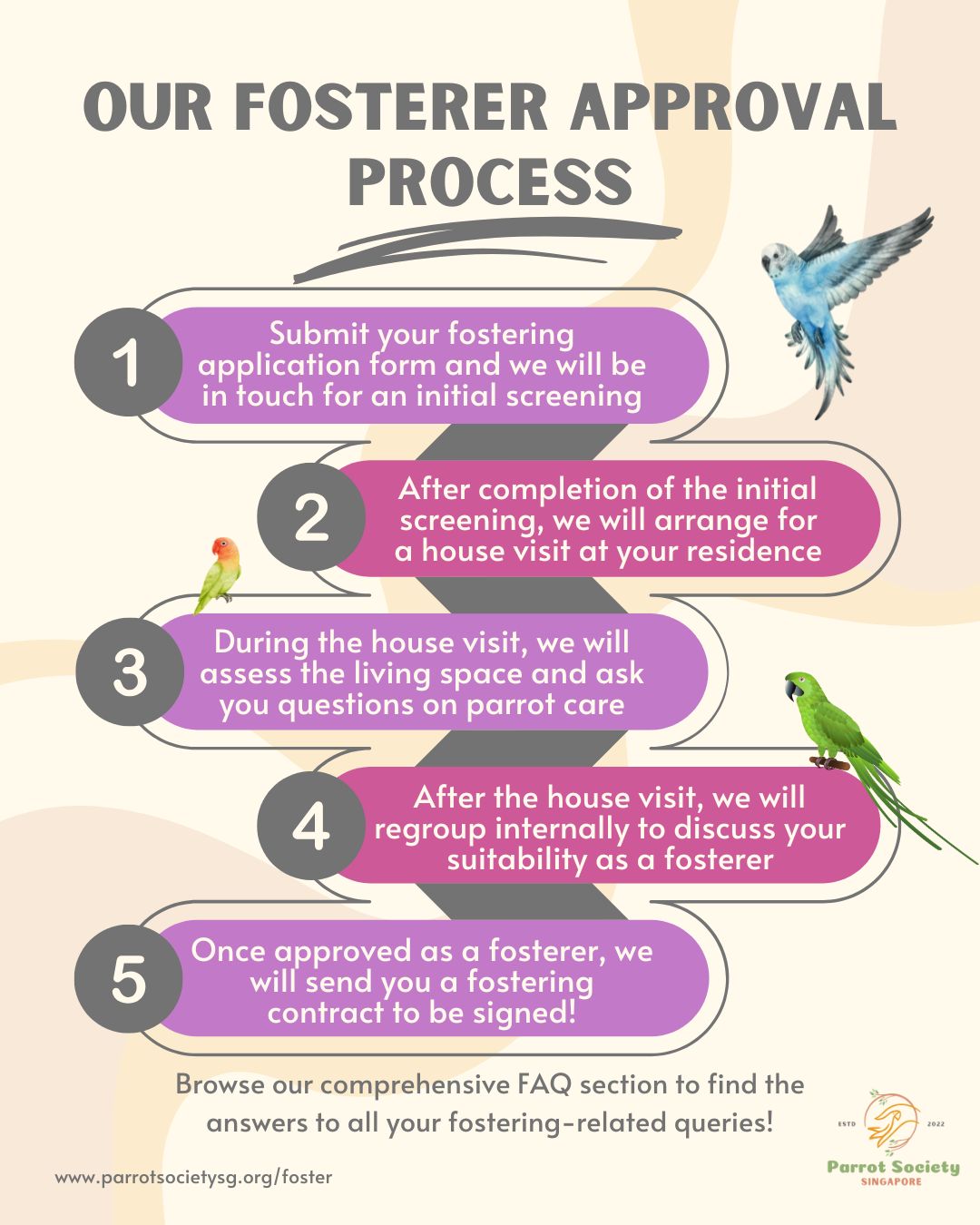
Our fosterer approval process follows these steps:
Step 1: You Apply
Fill out our fostering application form to let us know your interest and provide details about your experience, lifestyle, and home environment. This helps us screen whether fostering is the right fit for you. Do note that only those who have passed our initial screening will be contacted for the next step!
Step 2: We Arrange A House Visit
Two Welfare Interviewers from Parrot Society (Singapore) will visit your home to ensure it’s safe and suitable for a foster parrot. We’ll also provide tips on how to make your space more parrot-friendly, if needed.
Step 3: We Interview You
The interview is an opportunity to discuss your expectations, experience with parrots, and how fostering will fit into your daily life. It’s also a chance for you to ask any questions about the process.
Step 4: We Decide On Your Suitability
Based on the application, house visit, and interview, we’ll have an internal discussion on whether fostering is a good match for you. Once the outcome is finalised, we will contact you to sign the fostering contract.
Step 5: Signing Of The Fostering Contract
If approved, you’ll sign a fostering contract outlining your responsibilities as a fosterer. After this, you’ll be added to our communication channels to be informed of any fostering opportunities.
Frequently Asked Questions About Fostering
What is parrot fostering, and how does it work?
Parrot fostering is a temporary arrangement where an individual or family cares for a parrot until a permanent home is found.
Why should I consider becoming a foster parent for a parrot?
Becoming a foster parent for a parrot can be a rewarding and meaningful experience. It allows you to provide a temporary, loving home to a parrot in need, helping them to regain trust and social skills. For you, fostering offers the joy of companionship without the long-term commitment, and it’s an excellent way to learn about parrot care.
Additionally, by fostering, you contribute to animal welfare, giving a parrot a second chance at a happy life. The bond you form with the parrot during this time can be incredibly fulfilling, making fostering a unique and impactful experience.
What types of parrots are typically in need of foster care?
We get a variety of birds from small to large parrots, with different health conditions, personalities, and needs.
How can I get involved in the foster program and start fostering a parrot?
Read carefully the information on this page, and fill up the fostering application form. We will then contact you for an interview and assessment before approving you as a PSS fosterer.
How do I introduce my foster parrot to my existing parrots?
Foster birds require a minimum of 6 weeks of quarantine to ensure they are healthy and free of parasites before introducing them to other parrot birds. This is to reduce the chance of spreading any potential diseases or parasite that might not be apparent on the onset of fostering.
Birds should never be introduced to non-avian and predatory pets due to the risks involved.
How can I provide feedback or suggestions to improve the fostering program?
You may provide your feedback directly to the PSS member that liaised with you for the fostering, or email us at parrotwelfare@parrotsocietysg.org
FAQ - Fostering Requirements at Parrot Society (Singapore)
Is there an age requirement to become a parrot fosterer?
Fosterers are required to be 18 years old or older.
What are the requirements for becoming a foster parent of a parrot?
- A safe and parrot-friendly environment at home where the bird can live comfortably.
- Time and commitment from foster parents to provide daily care such as feeding, socialising the parrot, changing cage liners, training and attending to any special needs or medical requirements.
- Foster parents are highly encouraged to go for all house visits to help screen potential adopters for the foster parrot.
- Ability to transport the parrot to veterinary appointments and adoption events (such as via taxi, own transport, etc.) would be highly preferred.
- Financial stability to provide basic ongoing supplies like food, bedding and toys. PSS typically covers medical expenses and a starter pack which includes limited quantity of pellets, a few toys and perches and a suitable cage (all subjected to availability). Additionally, any other expenses incurred by the fosterer can be reimbursed if preapproved.
- Basic or comprehensive knowledge of parrot care, willingness to learn, and openness to change existing habits to cater to the foster parrot’s needs.
- Staying contactable and proactiveness in communicating with PSS regarding updates on the parrot.
Can I foster if I live in a rental property or property that does not belong to me (e.g. parents' house)?
We require that the owner of the property give permission for you to conduct fostering activities to avoid any disputes. Upon discussing about fostering arrangements, we will send you a consent form for the property owner to sign and agree that you are allowed to foster birds within the premises.
How can I prepare my home for a foster parrot?
Create a designated area for housing the foster parrot(s). These designated areas have to be isolated from other pets and parrots you have at home as the foster parrot will need to be quarantined and monitored for any health issues.
Gather essential supplies such as food and water bowls, perches, toys and food. Contact PSS if you do not have access to these and we will either provide them (if available) or guide you on how to acquire them.
Do I need to have experience with parrots to foster them?
No, you don’t need to have experience with parrots to foster them as long as you are willing to commit and are open to learn. Those new to parrots will need to demonstrate some basic knowledge of parrot care during the interview, and be willing to comply to our parrot care guidelines in the best interests of the parrots.
What is the duration of a typical foster placement?
The typical duration is minimum 3 months, with possibility of extension until the bird has been successfully adopted.
Do I need to have specific parrot-related equipment or facilities at home to foster?
It would be ideal (but not mandatory) to have a spare cage in reasonably good condition (e.g. not rusty and of a suitable size for the bird), a smaller cage for carrying the bird to events and vet visits, suitable food and water bowls, toys and perches.
For foster parrots that require medicating, you will need the respective medical equipment and tools such as syringes, nebuliser, etc. You may contact PSS for support/advice if you do not have access to these items.
Can I foster if I have a full-time job?
Yes, many of our fosterers have full-time jobs and still participate in fostering. However, depending on how demanding your schedule is (e.g., overtime work, shift work, etc.), you’ll need to decide whether you have the time to commit to fostering.
Fostering involves providing socialisation and interaction for your foster bird, as well as possibly administering medical treatment and care. If you’re unable to accommodate these needs, it may be worth reconsidering.
Do I have a say in which parrot I foster, or is it assigned to me?
PSS will put up requests for fostering in our volunteer group chat. You may volunteer accordingly, subject to PSS’ approval. We encourage fosterers to be open to fostering various kind of parrots, regardless of the species and tameness!
Can I foster multiple parrots at once?
Every new foster bird requires space for 6 weeks of quarantine, for example a separate room or a distance of at least 2m away from existing parrots, birds, or other fosters, and no interaction with other parrots (not even through the cage bars). This is to reduce the change of spreading any potential diseases or parasite that might not be apparent on the onset of fostering.
If your home has sufficient space to cater for multiple fosters, you may volunteer for more fostering opportunities and PSS will assess the environment for suitability.
Can I foster if I have young children or other parrots at home?
Yes, you may still apply to foster, but please take note of the following:
- If you have other birds, their interaction with the foster bird should be avoided as the foster bird will need to be quarantined for health monitoring during the fostering period.
- Please carefully supervise interactions between young children and the foster bird to ensure safety and positive experiences for both the children and the parrot.
- For predatory mammalian pets (E.g. dogs & cats etc.), avoid letting your foster parrot interact with them as predatory instincts may lead to unwanted accidents. Whilst you may assume your mammalian pet is not violent, it is still an unnecessary risk to take. At the same time, mammalian saliva is toxic to birds and ingestion by the bird can lead to sickness and even death.
- For non-predatory mammalian pets (E.g. rabbits, hamsters & guinea gigs etc.), while they may not have predatory natures, they can still get defensive when startled, which can lead to accidents and injuries to the bird. Similarly, their saliva is also toxic to birds, so it is best to avoid interactions between the two species.
- Aquatic enclosures (E.g. fish tanks, terrapin tanks, ponds, etc.), pose a potential threat to birds as they may accidentally drown in the water. At the same time, the water may contain chemicals or particles that are harmful to the bird. Such enclosures should be covered to prevent access by the bird.
What is your policy on communication and updates with foster parents?
We expect fosterers to proactively provide us regular (weekly or more) updates on how their foster parrot is doing. For health and emergency issues, contact us as soon as possible. For foster parrots that have special requirements such as health monitoring, we may require more frequent updates. We also require that fosterers respond to us within 24 hours if we initiate asking for updates.
Do I need to be available for home visits or checks during the fostering period?
We may request home visits/checks at any point in time; can be in person or via video calls or messaging.
FAQ - Fostering Expenses & Support
What expenses are covered by PSS when I foster a parrot?
Preapproved expenses pertaining to transporting the parrot around for PSS-related matters (such as taxi fares to go for vet visits and adoption drives), as well as medical bills can be claimed from PSS.
However, the fosterer will be required to make payment upfront and claim using the receipt of the expenses. PSS processes claims within 30 calendar days.
In the event that expenses exceed our available funds, we may proceed to crowdfunding, which means it may take some time before you can be fully reimbursed.
What expenses will I be responsible for as a foster parent?
Any consumables including daily food and water, hygiene-related materials such as cage liners and cage cleaning products and wipes, toys and perches. If you happen to have a spare cage suitable for your foster bird, we would appreciate if you could use it for the bird.
If you do not have any spare cages, you may check with PSS to loan one from us, or arrange to purchase one and be reimbursed. Any purchases made on behalf of PSS and reimbursed by PSS will be considered property of PSS, and must be returned upon request.
What training or support is provided to foster parents?
PSS supports foster parents through regular check-ins and access to support groups. We also provide trainings to foster parents upon request.
What should I do if my foster parrot has medical issues, or become sick or injured during their stay?
Part of the role of a fosterer is to take good care of the foster bird. In the event of injury or illness, the fosterer is expected to arrange for vet visits to PSS’ recommended vets, and follow up with medicating and treating the bird until it recovers.
If the fosterer is unsure of making any decision involved in the treatment of the parrot, please contact PSS immediately for a discussion. Fosterers would be required to make payment of all medical fees first, then claim from PSS later (with valid receipts).
What happens if I can no longer care for my foster parrot?
The mandatory minimum fostering duration is for 6 weeks per intake. If you are not able to commit to the full 6 weeks due to unforeseen circumstances, please contact PSS immediately for further arrangements.
Do I need to provide transportation for vet visits or adoption events?
Due to restrictions on transporting pets via public transport, you’ll need to use taxis or private hire services like Ryde, Gojek, or Grab (excluding GrabPet) to transport the bird for vet visits or adoption events.
Any costs incurred for these transport services may be reimbursed by PSS. However, please note that expenses related to personal vehicles, vehicle rentals, or parking fees cannot be reimbursed.
Is there a foster coordinator or point of contact for questions or emergencies?
Contact the PSS member who got in touch with you to coordinate the fostering for any emergencies. For non-emergency questions, you may contact any PSS member.
FAQ - Adoption Of The Parrot
Can I choose to adopt the parrot I'm fostering if I bond with them?
If you are interested in adopting the parrot you are fostering, you may send in your application to adopt it. Every adoption interest will be screened and assessed and PSS will make the final decision on the placement of the bird.
Am I responsible for finding a permanent home for my foster parrot?
PSS will be responsible for screening and interviewing potential adopters for all fostered birds, but if you know of someone who might be suitable, you may ask the person to submit their interest to adopt via our adoption interest form: https://parrotsocietysg.org/adopt/.
What is the process for transferring a foster parrot when they find their forever home?
PSS will finalise the adopter who will adopt the parrot you are fostering, then either arrange to pick up the bird from you, or arrange for the adopter to pick it up from you.
How can I help promote my foster parrot for adoption?
PSS puts up adoption listings when deemed appropriate. After the listing has been published, you may share it in among bird communities or with your own social circles.
Foster Stories
Here are some stories shared by our fosterers on the rewarding journey of fostering a parrot with PSS.
More stories coming soon!


